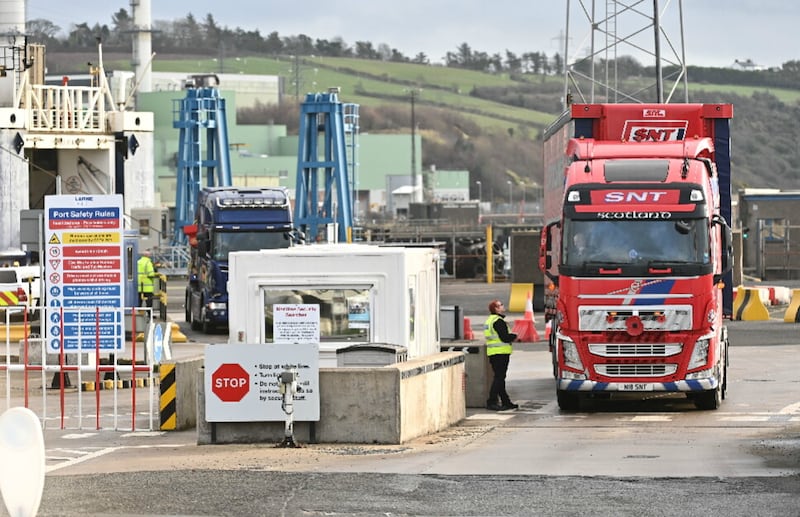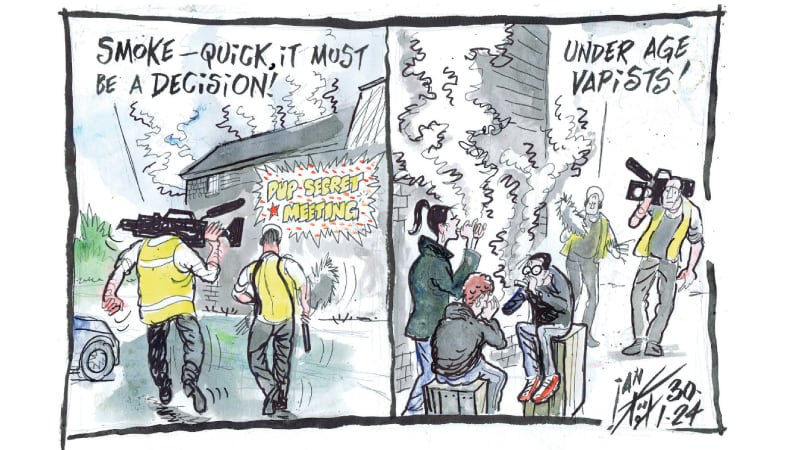It’s taken the guts of year to get a deal that Sir Jeffrey Donaldson believes could be sold to his party – more if you count the Windsor Framework negotiations.
From a hardline unionist’s point of view what’s on offer is far from perfect, as the Irish Sea border will prevail.
From a moderate unionist’s viewpoint, it’s not ideal either but then they’re also likely to acknowledge that we live in an imperfect world and that post-Brexit Northern Ireland is incompatible with a binary solution that would create any barriers, trade or otherwise, with the Republic.
The landing zone for the deal was always limited, as there was to be no reopening of the revised protocol deal agreed between the EU and UK government almost a year ago.
The agreement was always going to be heavy on rhetoric and aspiration, rather than rigid and bureaucratic, reflecting how the British were negotiating with one hand tied behind their back.

In recent days, primarily through a series of leaks to the Daily Telegraph, the outline of what Sir Jeffrey briefed to his party executive on Monday night has become apparent.
The main plank of what the DUP has secured is seemingly a reboot of the deal first touted by former prime minister Theresa May some five years ago.
The British government, in what is another row back from a hard Brexit, plans to limit any future divergence betweeen its own regulatory standards and those of the EU. This is also the likely direction of travel for the Labour administration when it comes to power.
- Collapse of Stormont and the powersharing Executive: An explainerOpens in new window
- Leading Article: DUP's disastrous links with Boris JohnsonOpens in new window
- Northern Ireland protocol: Deliberate wriggle room and semantic sleight of hand should enable DUP's seven tests to be metOpens in new window
It’s a move that is generally supported by pragmatic manufacturers across the UK but is unlikely to find favour within the hard-right European Research Group. The DUP feared greater regulatory divergence would damage trade between the north and Britain because the two regimes were likely to differ increasingly.
However, assurances from the British government and amended legislation would meet the criteria for at least one of the DUP’s seven tests.
The Windsor Framework gave us the green and red lanes, the former for goods destined for the north only, the latter for those with an ultimate destination in the EU’s single market.
The DUP’s concerns centred on the green lane, as this deals with internal UK trade. It’s been reported that the green lane is to be renamed the ‘UK internal market lane’ though so far there’s been no indication that the party’s hope of reduced checks will materialise.
There’s also likely to be new measures that will guarantee the “unfettered access” to Britain that Boris Johnson promised Northern Ireland businesses in 2019, while there’s also talk of establishing an ‘east-west council’, potentially mirroring the north-south remit of Intertrade Ireland.
What’s on the table isn’t especially significant and doesn’t necessarily justify the DUP’s two-year boycott of the institutions. That said, it could be argued that what Sir Jeffrey has secured is more than a mere fig leaf. The ultimate judges of the deal’s merits are the DUP party officers and its executive. Whatever they decide, it’s unlikely to be unanimous.



